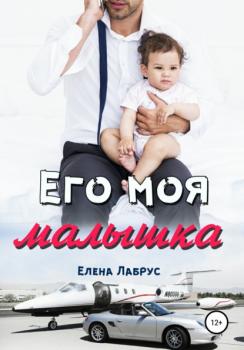Автор
Все книги издательства АвторСиняя бабочка
Вниманию читателей предлагается сборник стихотворений. Темы: "природа", "история и общество", "искусство и творчество", "любовь и дружба", гражданская лирика, сатира и юмор. Приятного чтения!
ПсевдоНуль
Ю.Л. Цифер – преподаватель математических наук в большом и красивом и умном университете. Студенты любят Цифера за его красоту и искрометность мысли. Однажды он предлагает троице учеников увлекательное путешествие в фантастический мир прошлого.
«НАЕОстров». Сборник памяркотов. Часть 75
ПАМЯРКОТЫ это небольшие смешные, иронические, сатирические рассказы, в стихотворной форме. А с учетом белорусской ПАМЯРКОВНОСТИ (покладистости) я их называю – ПАМЯРКОТЫ. Пожалуй, вы слышали знаменитый, классический анекдот о белорусской ПАМЯРКОВНОСТИ (ПОКЛАДИСТОСТИ): «Во время оккупации, немецкий комендант собрал на городской площади все население и объявил, что завтра вас будут вешать. И чтобы обязательно все явились к 10-00 и без опозданий. И вдруг из толпы голос: «А веревки с собой приносить?» А теперь, как этот анекдотичный случай выглядит в виде – ПАМЯРКОТА: ЕДИНОГЛАСНО! Нас завтра будут Вешать? – Классно!!! Да, мы двумя руками «ЗА», Причем – единогласно! Позвольте только Лишь спросить, С собой веревки Приносить?
Его моя малышка
В роддоме сказали, что её девочка умерла. Марина, как могла, пыталась смириться с потерей. Но через год увидела свою малышку на руках известного инвестора Романа Гомельского. Что бы ей ни говорили: этого не может быть, ты сошла с ума – материнское сердце не обманешь. Она ни перед чем не остановится, чтобы убедиться её ли это дочь.
Панславизм-Евразийство
Чтобы Россия могла развиваться как сверхдержава нужен комплекс геостратегических концепций оформленных в идеологию. Данная книга предлагает в качестве государственной идеологии избрать евразийство, социальное и философское учение князя Николая Трубецкого и Петра Савицкого приспособленное к современным реалиям геополитических вызовов.
Оковы небесного сияния
Если встанет выбор: жизнь без любви или смерть ради любви, то что ты выберешь? Он выбрал смерть. И найдет ли любовь свою Виктор средь мертвецов и гнили, что на стенах мира оседает?
Шейд
Шейд… Этот дерзкий красивый оборотень, бросивший вызов самому императору Ксантарии, а ныне – король и по совместительству вампир, стал моим мужем. Да, я, Оксана Миронова, умудрилась в первую брачную ночь оказаться в теле его истинной пары, Ксаны, а молодая невеста – очутилась в теле эльфийки Айрин на планете Миранда, и стала счастливой (или не очень?) обладательницей мужского гарема. И что теперь со всем этим делать?
Базисные виды структур. Хроно-Квантовая физика
Представлены: Базисные виды структур. Хроно-Квантовая физика – наука о первооснове Природы, создающая фундамент для: Общей физики, Естествознания и всей Науки. Хроно-Квантовая физика – теория Все-Единого-Существования-и-Взаимодействия Природы. Первично декларирует и формализует: теорию Единого-Поля.
Риданские истории
Ридан – это возведенный могучим Злом старинный город, на долгие века затаивший в себе самую темную неразгаданную сущность. Вот уже шестьсот лет со дня своего появления он поглощает жизни людей самыми изощренными способами, отравляет леденящим кровь ужасом души тех, чей черед еще не настал. И если верить блуждающим среди жителей слухам, даже после смерти цепкие пальцы древнего проклятия, лежащего тяжелым покрывалом на улицах Ридана, не отпускают жертвы за пределы своих границ, обращая умерших в самые разнообразные формы гнетущего существования во чреве Тьмы…
Повар Бульбарах. Шоколадные овечки пастуха Шумимуля
Тётушка Кексуния (давняя знакомая Бульбараха) решила устроить званый ужин. И попросила повара принести немного шерсти шоколадных овечек, чтобы сделать из неё лучшую на свете глазурь. Бульбарах с готовностью отправился исполнить это поручение. Но волшебных животных в далёкой горной долине пасёт жадный пастух. Он готов поделиться бесценным сокровищем только за особую услугу – которая впоследствии поставит нашего героя перед трудным нравственным выбором. Повар Бульбарах – серия книг о невероятных кулинарных приключениях. Рекомендуется тем, кто любит вкусно поесть и приготовить что-нибудь необычное.









